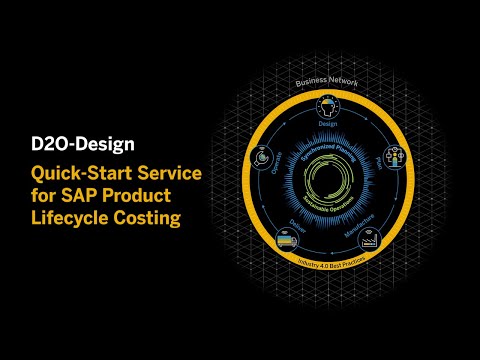Preh, a subsidiary of Joyson Electronics in Ningbo, China, is a manufacturer of high-quality automotive electronics systems. With more than 100 years of experience in the electronics industry and over 40 years in the automotive sector, the Germany-based company has the perfect combination of access to growth markets, deep technical know-how, and cost efficiency.
Preh is a global growth company with five sales locations, six production plants, and a strong market position in the automotive market for human-machine interface and e-mobility systems.
With constant company growth and ever-changing market requirements, the product lifecycle costing at Preh had reached its limits. “We are on the way to becoming a €2 billion company and did product costing without the support of a fully integrated data processing system,” recalls Harald Bayer, department head of Project Calculation at Preh Group. “For our management, it was now time to give the calculation of all our new products a new basis.”
The company knew it needed a single source of truth for all product cost information that would also enable analysis and support reporting.
Introducing a Future-Proof Standard Solution
“We looked at several software solutions on the market and our choice was SAP Product Lifecycle Costing. As we are trusting on the strength of SAP, this was a decision for the future,” Bayer says. “An SAP standard solution is a better fit with our system landscape.”
According to Bayer, key objectives for the project were:
- Replace former processes with a standardized process across the company
- Improve quality and accuracy for product costing along the product lifecycle
- Increase cost transparency for reporting and analysis to easily identify cost drivers
- Increase speed and flexibility in the product costing process and the efficiency of the entire organization
SAP Product Lifecycle Costing helps companies gain visibility across teams, calculate and proactively manage costs, and support new product innovations and customer-specific engineered products.
A Central Database for Product and Project Calculation
“In the first step, SAP Product Lifecycle Costing was implemented at our headquarters in Germany. Currently, we are doing the global rollout. This includes all business units at all locations and development centers, with the goal to set a common standard with global software,” Bayer says. “We want to make it available for all users involved in the product costing process. Therefore, we will train a large part of the entire PDP organization. There will be only one database.” He added: “The solution is integrated with our SAP ERP system that is a single global instance.”
To support various stakeholders in the most efficient manner, Preh created different apps and layouts within SAP Product Lifecycle Costing, such as a quality checker that helps avoid errors and therefore increase the quality of the costing result as well as a material price app in which the purchasing department can enter material prices that are automatically transferred into the database. In addition, SAP Services and Support supported the company in developing different reports and an interface to provide up-to-date material prices.
Preh also created additional reports and analyses, which helped provide more transparency thanks to different views.
Increased Transparency Helps Identify Cost Drivers, Optimize Design
In terms of the value Preh gained, “The main benefit is transparency,” Bayer says. “We can do analyses and reporting by pushing a button. With that, we know everything about cost drivers and can see the entire product costing. We can easily make comparisons between different calculations and see cost bridges, which was a lot of effort in the past.”
Leveraging the new database, the company can get an easier overview of which parts are used in which project; get up-to-date purchasing price information twice a day; examine calculations and prices of specific years; and make more precise product and project calculations.
From a business perspective, this means:
- Increased competitiveness, thanks to cost transparency and insight into cost drivers to make better design decisions
- Quick access to accurate product costing information
- Major time savings as master data is automatically replicated from SAP ERP, allowing employees to focus on cost improvements
“We can easily identify our cost drivers for working closely with development, purchasing, and our suppliers on the cost drivers to be more competitive in customer quotes,” Bayer comments.
By the end of the year, Preh plans to leverage SAP Product Lifecycle Costing to calculate more than a hundred projects with up to 10 different product variants – and many more later. “The choice of SAP Product Lifecycle Costing was the right decision,” Bayer says. “We were able to increase quality and accuracy in our processes and take an important step in our overall digitalization efforts.”
Karin Fent is senior director of Global Customer Success for Digital Supply Chain at SAP.




